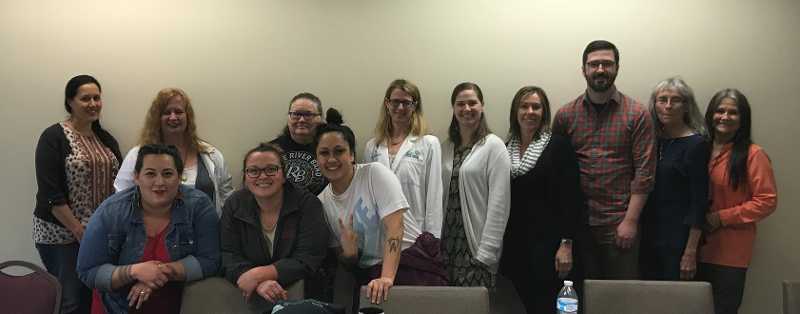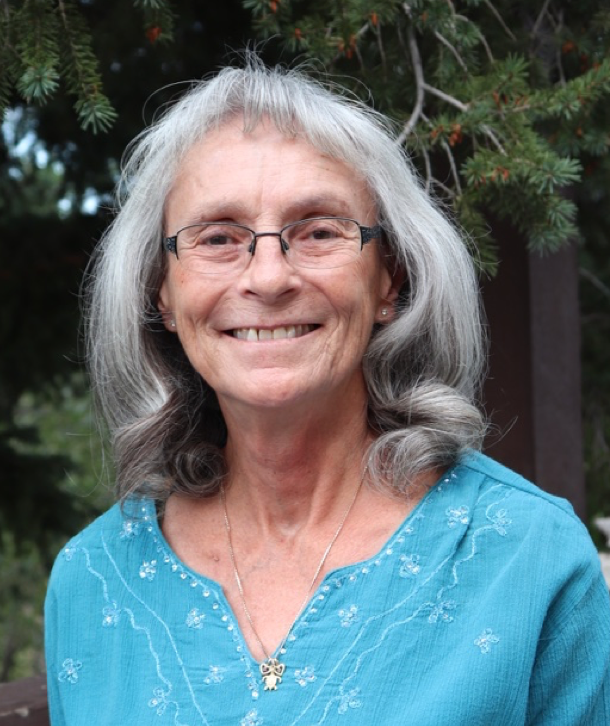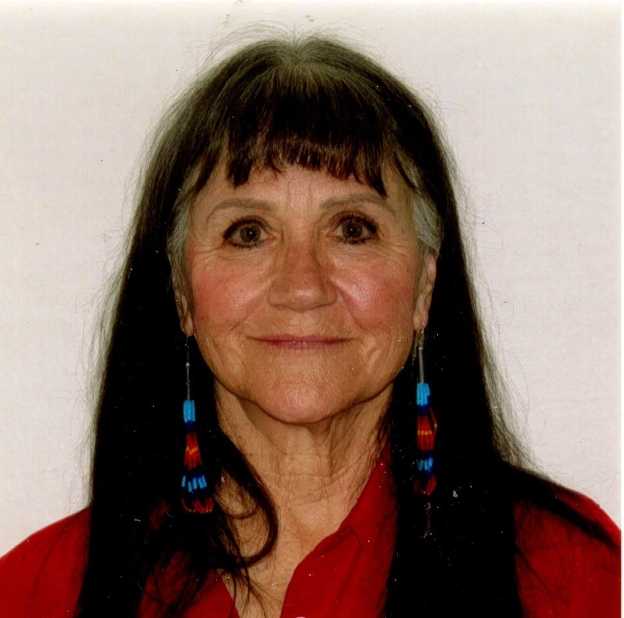NACR History
Native American Cancer Research Corporation - Background

Native American Cancer Research Corporation (NACR) was created in 1999 as a community-based, non-profit, 501(c)(3) organization. It is an independent, stand-alone entity operating out of Pine, CO with a board of directors and three key staff. NACR is recognized locally, regionally, nationally and internationally as a leader in providing culturally appropriate cancer education, navigation and support services to American Indians and Alaska Natives AI/ANs. It provides all services through partnerships with AI organizations in Denver, tribal communities (urban, rural and reservation), and national organizations (Mayo Clinic, Susan G. Komen for the Cure®, American Cancer Society). Local partners include the Denver Indian Health and Family Services (DIHFS) and the Denver Indian Center (DIC).
NACR is dedicated to preventing or reducing the risks for cancer through education and referral to health promotion programs (physical activity, healthy eating, tobacco control and reducing exposure to environmental contaminants) and cancer screening and early detection services). NACR focused on improving the lives of Native American cancer patients, survivors and their loved ones. It accomplished these foci by designing programs to meet the needs of Native Americans, also known as American Indians and Alaska Natives (AI/ANs), facing cancer by implementing community-driven and community-based participatory service and research programs. NACR staff has worked directly with the AI/AN communities living in different states, including but not limited to Colorado, Alaska, California, South Dakota, Nebraska, Oregon, Washington, Florida and Georgia, in partnership with American Indian Tribes, Alaska Native villages, Indigenous urban programs and organizations. NACR continues to develop and implement educational and service programs that are vital to improving the health of the AI/AN community in Colorado and the Nation. NACR provides services to AI/ANs throughout the Nation through the Memorial Fund and partnerships with Tribes and Native organizations.
Federal grants (primarily through the National Institutes of Health) have funded 75% of NACR’s projects, research and programs since 1998 (i.e., one year prior to its incorporation for “Genetic Education for Native Americans” (GENA®) [PI: Burhansstipanov, HG01866]). State, foundation and charity donations have funded the remaining 25%. NACR’s research projects have shown that there is a great need for culturally relevant and culturally specific education and support services for our communities in Denver and nation-wide.
NACR’s Primary Ongoing Programs Address:

- Information and support for AI/AN cancer survivors
- Early detection and screening programs
- Native Patient Navigation training, evaluation and program implementation (Native Sisters and Native Brothers)
- Cancer education throughout the continuum (prevention through end-of-life)
- Genetic Education for Native Americans (GENA®) [PI: Burhansstipanov, HG01866]
- Clinical Trials Education for Native Americans
- Community-based participatory research (CBPR) and community-based participatory approaches (CBPA)
- Program and project evaluation strategies
- Culturally competency training
- Culturally competent curricula (e.g., "Get on the Path to Health" (6-9 sections that address breast, cervix, colon, lung and prostate cancers)
- Uncommon cancers (adult leukemia, kidney, stomach/gastric, gallbladder, pancreatic, brain, endometrial, lymphoma, myeloma)
Major Accomplishments:

NACR is nationally recognized as a leader for culturally competent outreach, education and navigation to screening and support services. NACR staff have been working for three decades in cancer prevention and early detection. Since NACR’s inception, staff has assisted more than 1,266 women living in the Greater Denver Metropolitan Area with breast health screening and follow-up care for all who had an abnormal finding. NACR also provided patient navigation services to AI/ANs diagnosed with cancer who needed help. NACR employs navigators trained by NACR’s Native Patient Navigator Training and the Colorado Patient Navigator Training Program. NACR’s training includes culturally appropriate outreach methods, navigation, cancer screening and cancer specific topics. NACR has completed multiple local (>30), state (8) and federal (25), research studies and projects on cancer outreach, education, and screening, building the evidence for effective strategies in Indigenous peoples. NACR has produced >50 peer-reviewed articles to share research findings with both tribal and non-Native professionals and held multiple local, regional and national meetings to disseminate findings and results. With funding from NIH, Avon, Susan G. Komen for the Cure®, and others, NACR developed, evaluated and validated prevention curricula designed for under-served populations including "Get on the Path to Health" for breast (2003), cervix (2006) and colon (2005) cancers, and clinical trials curricula (Colorado Culturally Competent Clinical Cancer Care Curriculum (7Cs) [PI: Krebs; NCI R25 CA082714] and Clinical Trials Education for Native Americans, Cancer League of Colorado). NACR has completed multiple NIH studies focused on prevention of cancer including: (1) Increasing Mammography for Urban AI Women [PI: Burhansstipanov, NCI R25 CA77665] (2) Walking Forward [PI: Petereit, 1U54CA142157 and 5U56CA099010] (3) Increasing Mammography Screening among Medically Underserved Women [PI: Burhansstipanov, NCI R25 CA 96540], , (4) Walking Forward [PI: Petereit, 1U54CA142157 and 5U56CA099010 2 3 4 5 (5) Increasing Mammography Screening among Medically Underserved Women [PI: Burhansstipanov, NCI R25 CA 96540], 6 7 (6) Native Navigators and the Cancer Continuum (NNACC) [PI: Burhansstipanov, R24MD002811]. As an example, NNACC was funded by the National Institutes of Minority Health and Health Disparities, NIH. It was a community based participatory research study among five organizations with the goal of improving AI’s health behavior to prevent or control cancer throughout the continuum of cancer care. NNACC included multiple series of 12 two-hour workshops conducted over a 3-month period in each setting. Staff implemented the workshops, referred participants to cancer screenings, helped participants access local programs and resources and assisted with access quality cancer care. Interest and willingness to take part was much greater than anticipated. A total of 1,964 participated. The intervention was effective regardless of the participants’ gender, age, race, and educational level. NACR staff have published more than 200 peer reviewed manuscripts.
NACR Administrative Staff

Lisa Harjo (Choctaw Nation of Oklahoma)
Executive Director, NACR
Lisa Harjo is a member of the Choctaw Nation of Oklahoma. Since 2000, she has been a Native Patient Navigator and Executive Director of Native American Cancer Research Corporation. She has worked in the public health arena since 2000, promoting and implementing projects that address health disparities for American Indians (AI), especially in cancer care and improved services and outcomes. Before coming to the health field, she spent twenty years teaching all ages from preschool through higher education while also working at the Denver Indian Center as a Teacher and then Executive Director. She also worked with over 75 American Indian tribes since 1988, providing workshops and training on a wide variety of topics. She received her Bachelor of Science in Native American Education and Child Development in 1974 from the University of California at Davis and a Masters of Education in Elementary Curriculum and Instruction from the University of Colorado at Denver in 1986. She lives in Denver, Colorado with her husband and their granddaughter.

Linda Burhansstipanov, MSPH, DrPH (Cherokee Nation of Oklahoma)
Founder and grants director, NACR; President, NACI
"Linda B" taught at California State University Long Beach from 1971-1989 (promoted to full professor in 1988) and University of California Los Angeles (Part-time) from 1971-1976. During her early professional career, in addition to teaching, she worked with the National Native American AIDS Prevention Center (1985-1989) and with multiple rape and women’s violence programs and free clinics (1977-1985). She was on the Board of Directors for the American Indian Clinic (Compton and Bellflower, CA) in 1986-1989, which started her formal work within AI communities. She was the Program Director and developed the Native American Cancer Research Program at the National Cancer Institute (NCI) of the National Institutes of Health (NIH) (1989-1993) and Director of the Native American Cancer Research Program at Anchutz Medical Center in Denver, CO (1993-1998). In 1998 she created Native American Cancer Initiatives, Inc. (NACI), a for-profit, woman-owned business. In 1999 she created Native American Cancer Research Corporation (NACR) a community-based, non-profit 501(c)(3) organization. Profits from NACI helped support the growth of NACR during the initial 8 years of its existence. Today she continues her teaching through community based and professional trainings/workshops. As an author she has published over 160 peer-reviewed journal articles and chapters on cultural issues and cancer control among Native Americans. She also has served on multiple NIH advisory boards and scientific councils.
- Dignan, MB, Burhansstipanov, L, Hariton, J, Harjo, L, Rattler, T, Lee, R, Mason, M. A Comparison of Two Native American Navigator Formats: Face-to-face and Telephone. Cancer Control. Journal from the Moffitt Cancer Center, Cancer Culture and Literacy Supplement. November 2005, pp. 28-33, PMID 16327748
- Petereit DG, Rogers D, Burhansstipanov L, Kaur JS, Govern F, Howard SP, Osburn CH, C. Coleman N, Fowler JF, Chappell R, Mehta MP. Walking Forward: The South Dakota Native American Project. Journal of Cancer Education :2005: 20: (Suppl.): 65-70. PMID: 15916524
- Petereit DG, Rogers D, Govern F, Coleman N, Osborn CH, Howard SP, Kaur JS, Burhansstipanov L, Fowler FJ, Chappell R, Mehta MP. Increasing Access to CCT & Emerging Technologies for Minority Populations: The Native American Project. Journal of Clinical Oncology: 2004: 22: 22 pp. 4452-4455 PMID: 15542797
- Petereit DG, Burhansstipanov L. Establishing Trusting Partnerships for Successful Recruitment of American Indians to Clinical Trials. Cancer Culture and Literacy. Cancer Control. Journal from the Moffitt Cancer Center. July 2008, 15(3): 260-268. PMID: 18596679
- Petereit D, Subrahmanian, K, Kanekar S, Burhansstipanov L, Esmond S, Miner R, Spotted-Tail, C, Guadagnolo BA. Community-based Participatory Development, Implementation, and Evaluation of a Cancer Screening Education Intervention among American Indians in the Northern Plains, Journal of Cancer Education. PMID:21431984 DOI 10.1007/s13187-011-0211-5
- Burhansstipanov L, Dignan MB, Schumacher A, Krebs LU, Alfonsi G, Apodaca C. Breast Screening Navigator Programs within Three Settings that Assist Underserved Women. Journal of Cancer Education March 2010. PMID: 20300914. DOI: 10.1007/s13187-010-0071-4
- Burhansstipanov L, Christopher S, Schumacher A. Lessons Learned from Community-Based Participatory Research in Indian Country. Cancer Control: Journal of the Moffitt Cancer Center. November 2005. 70-76. PMID:16327753
- Battaglia, TA, Burhansstipanov, L, Murrell, SS, Dwyer, AJ, Caron, SE. Assessing the Impact of Patient Navigation: Prevention and Early Detection Metrics. Cancer, August 1, 2011; 3553-3564. PMID:21780090 DOI: 10.1002/cncr.26267
- Dignan, MB, Jones, K, Burhansstipanov, L, Michalek, AM. Evaluation Lessons Learned from Implementing CBPR in Native American communities. Journal of Cancer Education. Doi 10.1007/s13187-013-0648-4
- Burhansstipanov, L, Krebs, LU, Dignan, MB, Jones, K, Harjo, LD, Watanabe-Galloway, S, Petereit, DG, Pingatore, NL, Isham, D. Findings from the Native Navigators and the Cancer Continuum (NNACC) Study. Journal of Cancer Education. DOI: 10.1007/s13187-014-0694-y
- Harjo, L, Burhansstipanov, L, Lindstrom, D. Rationale for “Cultural” Native Patient Navigators in Indian Country. Journal of Cancer Education. Doi 10.1007/s13187-014-0684-0
- Watanabe-Galloway, S, Burhansstipanov, L, Krebs, LU, Harjo, LD, Petereit, Daniel G., Pingatore, NL, Isham, D. Partnering for Success through Community Based Participatory Research in Indian Country. Journal of Cancer Education. 2014. Doi 10.1007/s13187-014-0683-1
- Burhansstipanov, L, Krebs, LU, Harjo, L, Watanabe-Galloway, S, Pingatore, N, Isham, D, Duran, FT, Denny, L, Lindstrom, D, Crawford, K. Providing Community Education: Lessons Learned from Native Patient Navigators, Journal of Cancer Education. 2014. DOI: 10.1007/s13187-014-0690-2. JCED-D-14-00073R1
- Krebs LU, Burhansstipanov L, Watanabe-Galloway S, Pingatore NL, Petereit DG, Isham D. Navigation as an intervention to eliminate disparities in American Indian Communities. Seminars in Oncology Nursing. 2013, 29 (2): 118-127. Doi: 10.1016/j.soncn.2013.02.2007. PMID: 23651681.
- Eschiti V, Burhansstipanov L, Watanabe-Galloway S. Native cancer navigation: the state of the science: Clinical Journal of Oncology Nursing. 2013, 16 (1); 73-82, 89. doi: 10.1188/12.CJON.73-82. PMID: 22297010
- Eschiti, V, Lauderdale, J, Burhansstipanov, L, Weryackwe, LM, Sanford, SC, Flores, Y. Developing Cancer-Related Educational Content and Goals Tailored to the Comanche Nation. Clinical Journal of Oncology Nursing. 2015, 18 (2): E26-E31. Doi: 10.1188/14.CJON.E26-E31
- Burhansstipanov, L, Clark, RE, Watanabe-Galloway, S, Petereit, DG, Valerie E, Krebs, LU, Pingatore, NL. Online evaluation: Benefits and Limitations. Journal of Cancer Education. 2012, 27:24-31. PMID:22447646 DOI: 10.1007/s13187-012-0320-9